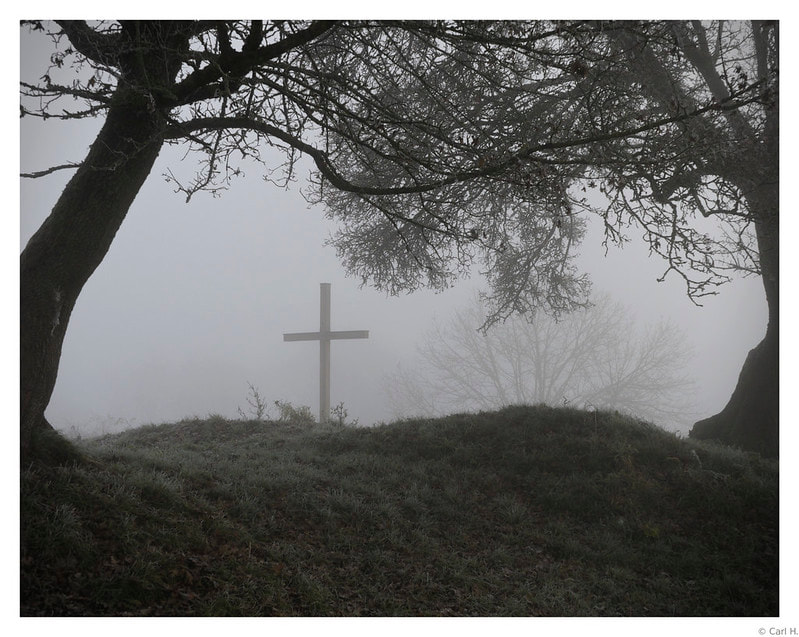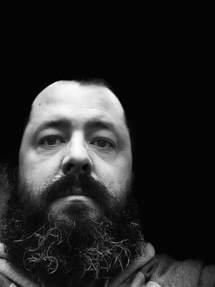|
My father was a music pastor. I am biased, certainly, but my guess is that anyone who encountered my Pops in this role would affirm that he was one of the most effective worship pastors they’ve known. He did a masterful job planning each service. It was a gift, and this offering was even more effective because none of it was about him. He did lead, but almost universally shied away from soloing. He invited others to do so, and cultivated their gifts by offering them opportunities and praise along the way. I was spoiled by his craft. He always chose the proper mixture between songs of repentance and rejoicing. He recognized the need for this balance between awe and humility on the one hand, and gratitude and praise on the other, and strove to make this path available for parishioners every service. In my journey I have visited and participated in almost every type of denomination. I am a wanderer by nature, and I enjoy learning new things and meeting interesting people, gleaning from them crumbs of wisdom that I would have never known otherwise. Along the way, I encountered several churches that are heavy on the praise and proclamation and short on the repentance, and this struck me as wrong, irreverent even. My personality is melancholy, so some of this is personal preference. I remember leading a few services at a small Baptist church in Shawnee, OK when I was in college. Eventually, the pastor told me my services would no longer be needed, because I was heavy on songs of repentance. I thought repentance is the first step to joy, and it is, but he told me his people needed more uplifting music. (If only I could go talk to my younger self 😊) My journey eventually brought me to the Orthodox Church, where we sing “Lord, have mercy!” more than any other phrase. This is our motto, and it is my favorite prayer, because it is truly all-encompassing. The fuller version of this – the Jesus Prayer – is “Lord Jesus Christ, Son of God, have mercy on me, a sinner.” Everything is there – theology, praise, love, repentance, hope. We also have several multi-week periods devoted to prayer and fasting, repentance, with constant prayer services devoted to the wretched state of our souls and a meditation on our deep need for salvation. It suits my personality, all this focus on repentance, but like with my father’s planning, there is balance, too. Among the things I’ve learned is the Prayer of the Hours that I’ve made a part of my daily rule. During the middle section of the intercession there is this- … guide our lives according to your commandments: make holy our souls, cleanse our bodies, correct our thoughts, purify our intentions and deliver us from every sorrow, evil and pain… So, I say this prayer almost daily, and for years now, the sort of cynical part of me agrees with all the parts about cleansing and correcting, but “deliver us from every sorrow, evil and pain?” That sounds like those churches I went to that catechized their members to believe everything would always work out, to the destruction of faith in many, I suppose. Some part of my psyche has subconsciously rejected this prayer for years. It appeared unseemly to make such an audacious request. Life is hard, destructive, desolate, and sad. Almost daily, if one pays any attention. It seems a fool’s errand to ask God to “deliver us from every sorrow, evil and pain.” Yet, today, after several weeks of my wife treating me with a great deal of kindness that I have not earned, cheering me toward wholeness, (Notice here that her love in action, not her theology or lecturing, moved me) I recognized the wisdom here.
The balance. We need songs of repentance, truly. We also need songs of deliverance. Perhaps, due to our frailty, we have greater need of the latter. Perhaps. God loves us as we are, yet longs to draw us closer to holiness that we might live fuller lives. Consider the Samaritan woman at Jacob’s well. She lived in a manner that was sinful, and harmful to her own soul. Yet, Jesus first sat with her and talked, heard her sorrow and looked into her sad eyes, when everyone else treated her with ridicule and ostracism. Jesus knew she needed love first, then truth. This is how we must love our neighbor. I have a few students who have done diddly-squat during this crazy time of online-hybrid-virtual-pandemic learning. They’ve just checked out. And in our teacher meetings, some bemoan these lazy little children and their irresponsible parents. And yet, they are people, these little ones, who need to be loved, despite their pitiful effort. So, when I see one of these children pass by, I try to reach out with a smile and ask something I think they can answer, to make them feel accepted. I try to give them a moment of peace, when I’m not checking in on their meager effort, but instead just seeing them, the person they are in their sadness. The point is, I sort of understand this, how to love my neighbor with mercy. (I’ve still got a long way to go.) However, I often refuse to accept that I SHOULD ASK God for joy, and deliverance from “every sorrow, evil and pain.” Maybe you’re like me, and your focus is always repentance. This morning I was reminded that it is alright to ask God for good, too. A perfect Father who gives good gifts, He is waiting for you and me to share the deepest longings of our souls. Part of faith is the humility to recognize our need for great mercy. The other part is hoping against reason that Our Heavenly Father will draw us near, and hold us, and wipe our tears, and fill our souls with rejoicing. So, join me as I ask God to “deliver us from every sorrow, evil and pain.” Press on.
4 Comments
This week two events converged in my life. First, I am a public-school teacher. There are a great many things public schools stand for that I endorse, heartily. However, there are other areas and political ideologies that agitate me because they violate my sense of right and true and helpful to children. This week was the first time I’ve been put in a situation where that agitation became raw, up close in a way that was inescapable. What am I to do? The second was a text from a friend, sending along some political information about a Biden appointee, followed by the declaration that now it is time for me to “stand up like a man.” What am I to do? Among teachers there are a load of things about which we can justly complain, especially right now, and one of the phrases that gets tossed around a lot is the question – “is this the hill you wanna die on?” The answer is usually ‘no’. This begs important questions. First, which ‘hills’ are worthy of our sacrifice? Also, is there a right or wrong (a worse, better, best) way to stand up for what you believe? I once had a pastor who said that unless you have wept over the sins of your neighbor, unless you have a broken heart for how their sin is destroying them, you needn’t bother speaking to them about their issue. While I think nuance should applied even when you are broken hearted, I also believe there is wisdom here- Unless you act in love, do not act. Jesus did, in fact, die on a hill. His sacrifice was for the salvation of the whole world, and I think we can all agree it was a worthy death. Indeed, we rejoice in his Passion! I also think that whatever aggressive methods illustrated in the story of Jesus – there are very few really (speaking stark truth to legalists and turning over the tables of the moneychangers) – are sanctified by the fact that he was first of all, and only, LOVE. If we go around dying on hills, and have not first died with Christ on Golgotha, if we have not died to our own selfish and vain imaginations and if we have not loved our neighbor as ourselves, perhaps we die in vain, or worse, harming others. What of those who stoned Stephen for teaching against their ‘righteous’ principles? What of the fools who tried to cast out demons in the name of Jesus, only to be beaten and rebuffed by the demons who said “Jesus we know, but who are you?” What about that time Peter refused to sit with the gentiles because they did not keep the whole law? In each of these cases, and there are many more (in the bible – the history of the Christian Church has endless examples – Crusades, Inquisition, etc.), the culprit was acting according to their principles. They were standing up “like a man.” And, they were wrong, not necessarily because of their principles, but because they didn’t have love.
There are many issues facing Christians today in a world where ideology changes every time the wind blows. We are afraid, perhaps rightly, that our norms and traditions will soon die. Let us not forget that the Roman Empire into which Christ was born was one of the most wretched and immoral times in all of history. Most of the wretchedness was either ignored or endorsed by the political powers. For some reason the gospel writers chose to mention almost zero times Jesus addressed these concerns. Indeed, if anything, he was shown rubbing shoulders with prostitutes and tax collectors and other villains. He was love. I assert that if you do not die first on the hill of Christ - Calvary - you risk great and perhaps damaging error dying on any other hills, because you act out of vanity and fear, not love. This is an uncomfortable place, I know. Press on. |
"Examine all things; hold on to the good."
-Saint Paul the Apostle Archives
September 2022
Categories |




